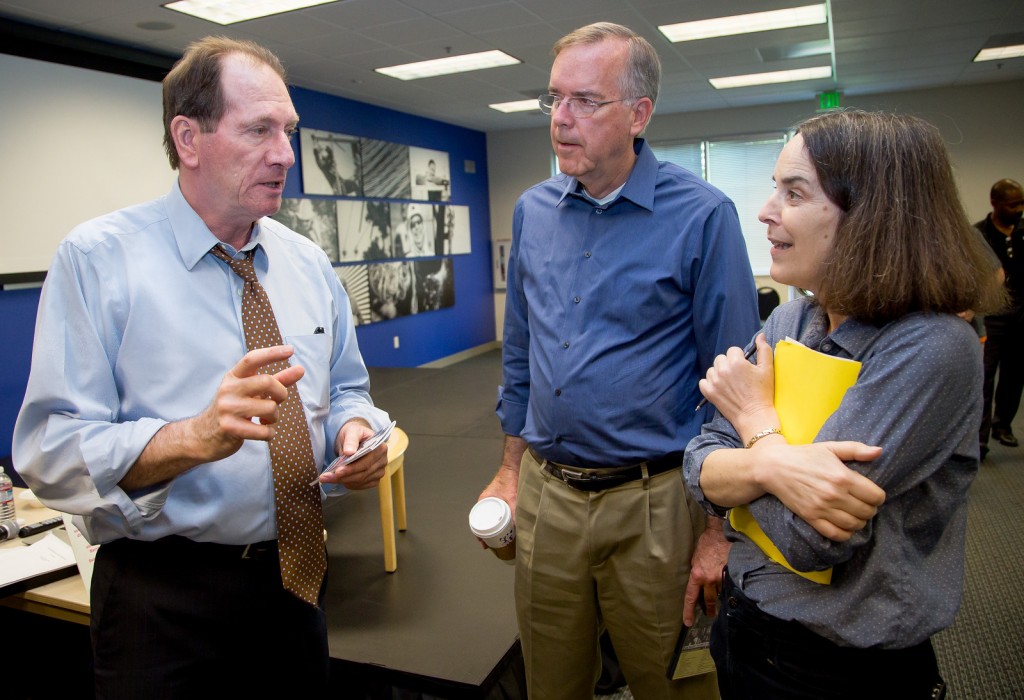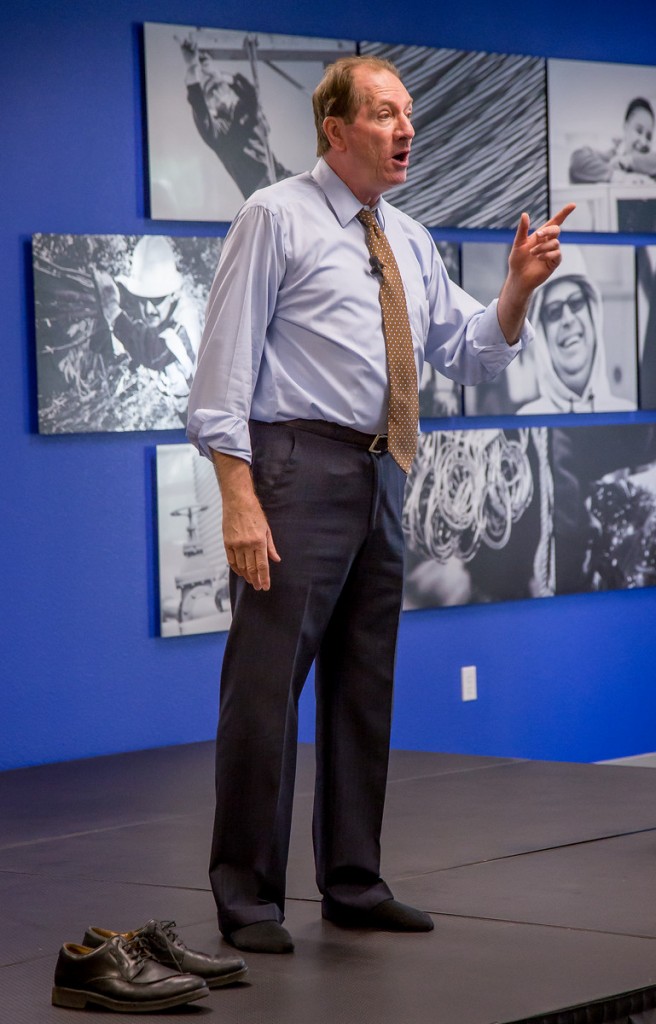Harry Bridges, the legendary leader of the Longshore Workers, came to life once again in a dramatic one-man show performed by actor Ian Ruskin for the IBEW 1245 Advisory Council at Weakley Hall.
Bridges won fame, adoration, and a whole bunch of enemies when he led longshore workers in an epic strike in 1934. After police shot and killed two strike supporters, San Francisco unions rose up in a general strike that paralyzed the city and led to a settlement of the longshoreman’s grievances.
That strike also set the stage for a new era of industrial organizing. Bridges himself helped the Congress of Industrial Organizations (CIO) lead an organizing drive at Pacific Gas & Electric in 1937-38. Although it failed, it set the stage for an organizing drive in the 1940s that succeeded in organizing most PG&E employees into a single, powerful union.
Ruskin, occasionally sipping from a glass of beer, portrayed Bridges as a straight-talking union man, aware of his personal shortcomings but always steadfast in his commitment to his fellow workers. Bridges came to America from Australia, led a tumultuous life that included multiple marriages, multiple successes at the bargaining table, and multiple encounters with the federal government, which alleged he was a communist and tried to deport him.
Bridges, as portrayed by Ruskin, seemed to take special glee in thwarting the government’s vendetta against him. Bridges never denied his association with communist workers, nor his admiration for the contribution that many of them made to the labor movement. But he adamantly denied that he ever belonged to the Communist Party. And the government never succeeded in deporting him.
IBEW 1245 founder Ron Weakley, who knew Bridges well, was subjected to the same sort of political slurs and red-baiting in the mid-1940s. Weakley, a leader of the CIO organizing drive at PG&E in the 1940s, became fed up with east coast CIO leaders who falsely accused him of being a communist. When it became clear that Weakley’s people and the CIO were going to part ways, “Harry Bridges offered us a home” at the Longshoreman’s hall, Weakley once said.
But Weakley didn’t need to take Bridges up on his offer of shelter. Weakley led 5,000 PG&E employees out of the CIO and they made a new home in the IBEW. By 1953, Weakley had organized one big union at PG&E, IBEW Local 1245, and negotiated the union’s first system-wide labor agreement with the utility.
Bridges and Weakley both fought against seemingly impossible odds to organize powerful, enduring unions that have delivered top wages, benefits and working conditions to this very day. Ruskin’s portrayal of Harry Bridges reminds us that ordinary people are capable of doing extraordinary things when they decide to fight back against injustice.
That’s a lesson the Advisory Council members apparently took to heart: they gave Ruskin’s performance a long standing ovation.

Actor Ian Ruskin, left, discusses the life of Harry Bridges with IBEW 1245 Organizers Fred Ross Jr. and Eileen Purcell. Ross’s father, Fred Ross Sr., worked with Harry Bridges after World War II to defend Japanese-Americans who had been interned during the war and faced terrible discrimination in housing and employment once they were released from the camps. Purcell’s father, attorney James Purcell, was a member of Bridges’ legal defense team when the government was trying to deport him.
